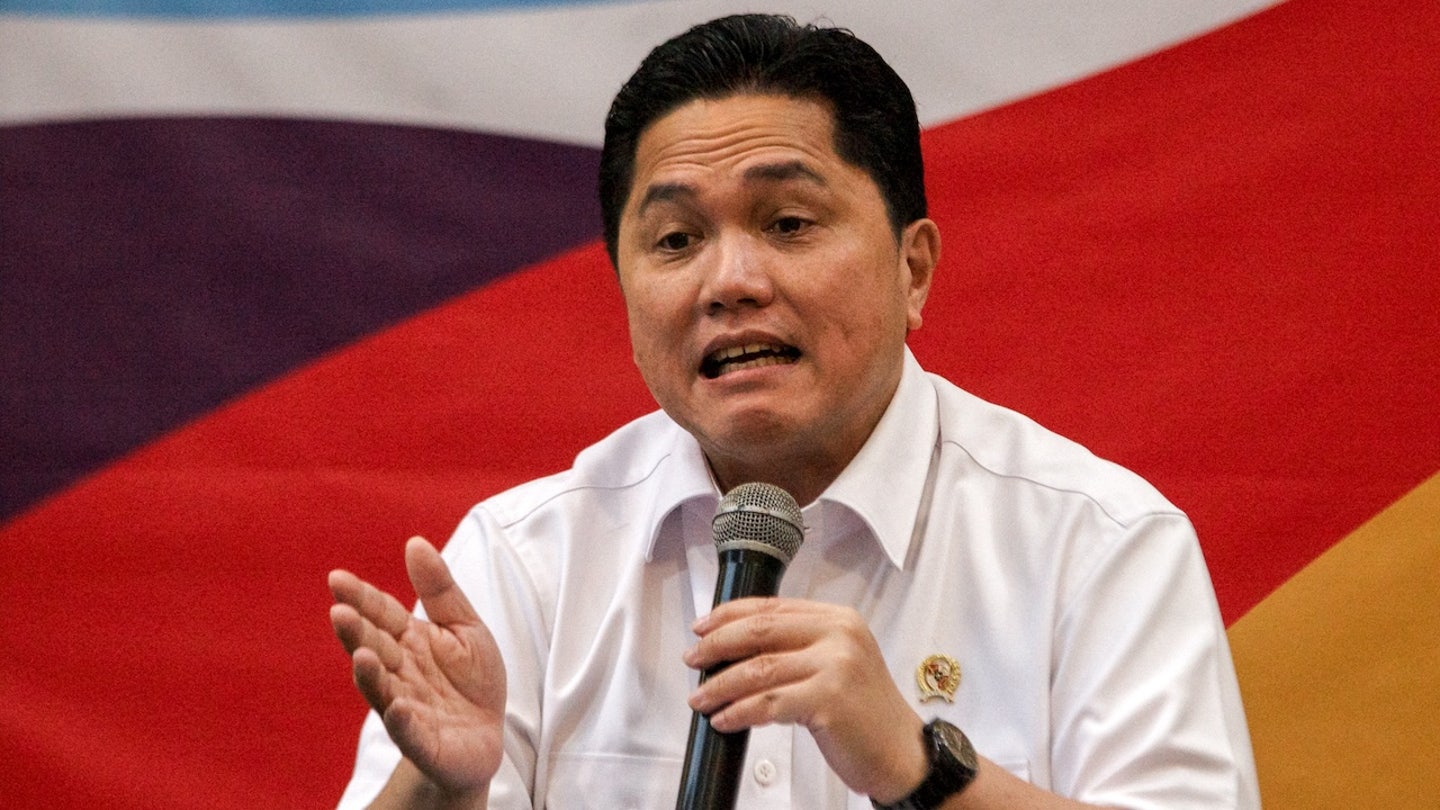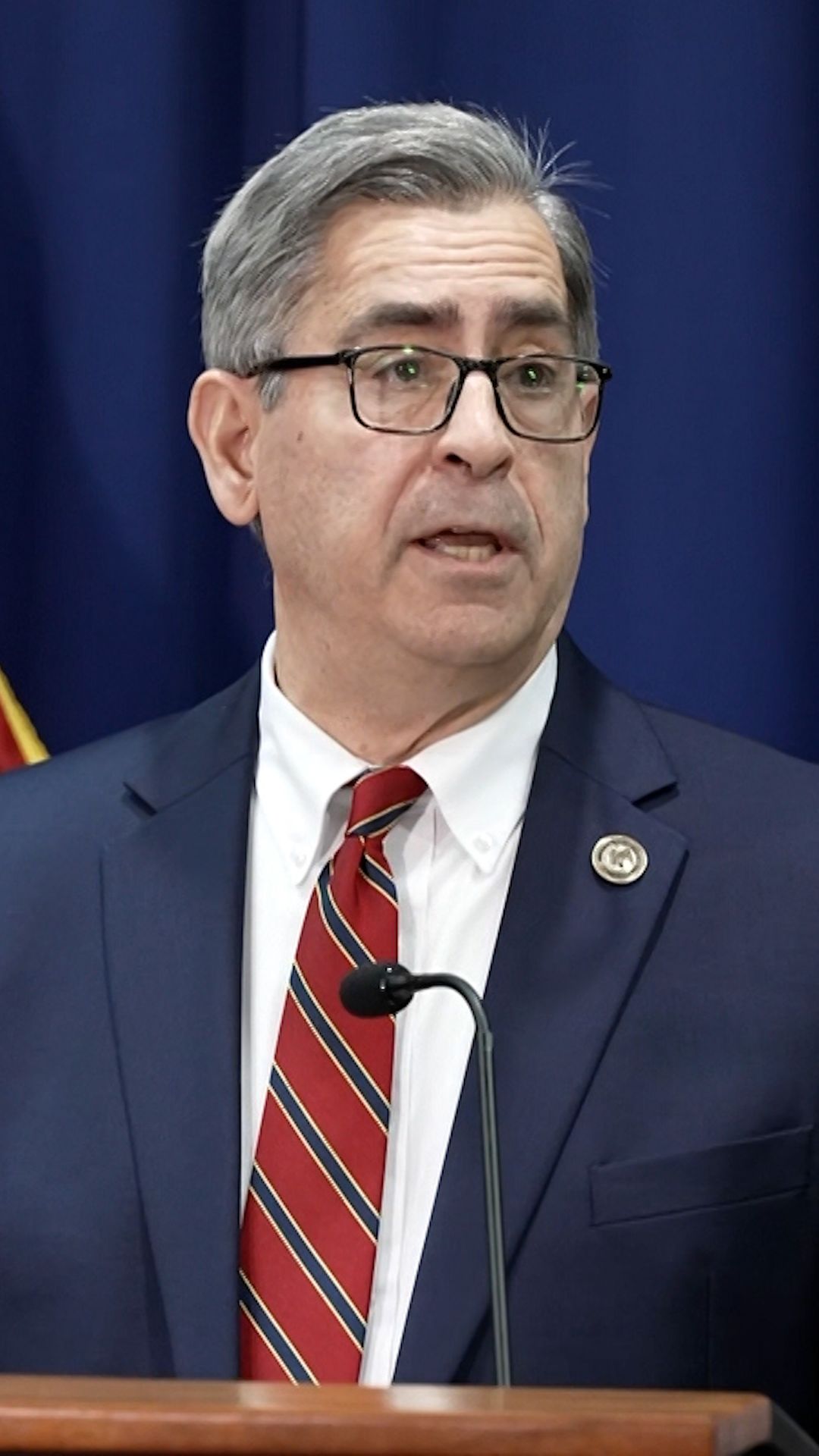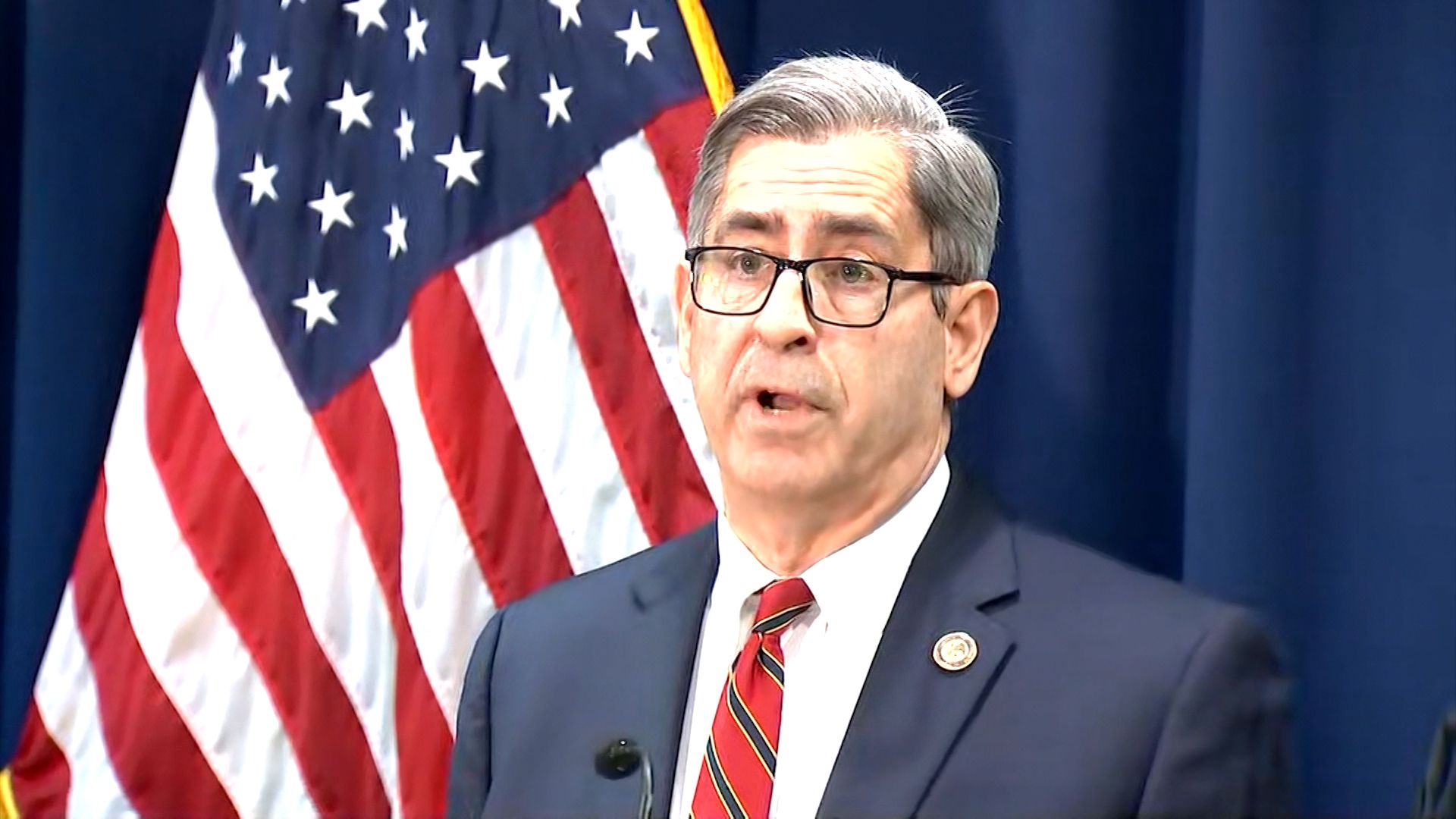
Ted Cruz calls out Californians accused of jeering girls protesting volleyball game involving trans athlete
Entities mentioned:
- Ted Cruz: Righteousness, Moral outrage, Influence
- California residents: Pride, Indignation, Loyalty
- Teenage girl protesters: Justice, Determination, Self-respect
- Trans athlete: Competitive spirit, Recognition, Self-preservation
- Jurupa Valley High School: Competitive spirit, Professional pride, Obligation
- Valencia High School: Competitive spirit, Professional pride, Unity
- U.S. Department of Justice: Justice, Control, Duty
Article Assessment:
Credibility Score: 70/100
Bias Rating: 65/100 (Lean Right)
Sentiment Score: 30/100
Authoritarianism Risk: 35/100 (Generally Democratic)
Bias Analysis:
The article leans right due to its focus on Cruz's perspective and emphasis on protests against trans athletes. It presents multiple viewpoints but gives more weight to those opposing trans participation in women's sports.
Key metric: Gender Equality in Sports
Let me tell you something, folks - this is a FULL COURT PRESS situation! We've got a real slugfest brewing on the field of gender equality in sports. Senator Cruz is coming in hot, throwing some serious heat at these California fans who are playing dirty defense against young female athletes. But make no mistake, this is no ordinary game - it's a championship bout for the very soul of women's sports! The trans athlete stepped up to the plate, but Jurupa Valley High School struck out in straight sets. Meanwhile, we've got players leaving the court faster than a bench-clearing brawl. This isn't just a game anymore, folks - it's turned into an all-out legal scrimmage with lawsuits flying like Hail Mary passes. And now the Department of Justice is suiting up to get in on the action! I'm telling you right now, this is going into overtime and it's anybody's game!

Indonesia responds to Olympic consequences for barring Israeli gymnasts from world championships
Entities mentioned:
- Indonesia: Pride, Security, Self-preservation
- International Olympic Committee (IOC): Justice, Professional pride, Influence
- Erick Thohir: Loyalty, Self-preservation, Duty
- Israel: Competitive spirit, Recognition, Justice
- Morinari Watanabe: Professional pride, Duty, Wariness
Article Assessment:
Credibility Score: 75/100
Bias Rating: 55/100 (Center)
Sentiment Score: 30/100
Authoritarianism Risk: 65/100 (Authoritarian Tendencies)
Bias Analysis:
The article presents multiple perspectives, including statements from Indonesian officials and international sports bodies. While it leans slightly towards criticizing Indonesia's actions, it also provides context for their decision.
Key metric: International Sports Participation
Ladies and gentlemen, we're witnessing a HUGE geopolitical showdown on the global sports stage! Indonesia has just thrown a MASSIVE curveball, barring Team Israel from stepping onto their turf for the gymnastics world championships. Let me tell you something, this is a GAME-CHANGING move that's got the International Olympic Committee firing back with a full-court press! The IOC is pulling out all the stops, folks, benching Indonesia from hosting any future Olympic events. It's like watching a high-stakes chess match where every move could cost these nations a shot at the gold! Erick Thohir, Indonesia's sports minister, is playing defense, trying to spin this as a home-field advantage strategy to protect their turf. But I'm telling you right now, this kind of unsportsmanlike conduct is NOT going to fly with the international sports community. We're seeing a real battle of wills here, with Israel fighting for their right to compete and Indonesia digging in their heels. This is the kind of fourth-quarter drama that could reshape the entire landscape of international sports competitions for years to come!

NBA commissioner addresses gambling scandal for the first time
Entities mentioned:
- NBA: Professional pride, Integrity, Control
- Adam Silver: Duty, Integrity, Control
- Congress: Righteousness, Control, Justice
- Terry Rozier: Greed, Self-preservation, Fear
- Chauncey Billups: Self-preservation, Fear, Greed
- Damon Jones: Greed, Self-preservation, Influence
Article Assessment:
Credibility Score: 75/100
Bias Rating: 55/100 (Center)
Sentiment Score: 30/100
Authoritarianism Risk: 35/100 (Generally Democratic)
Bias Analysis:
The article presents a balanced view of the situation, quoting multiple sources and providing context. It doesn't lean heavily towards defending or condemning any particular party involved.
Key metric: Sports Integrity Index
Let me tell you something, folks - this is a GAME-CHANGING MOMENT for the NBA! We're talking about a FULL COURT PRESS by Congress on Commissioner Silver and his team. The league is in the FOURTH QUARTER of this integrity crisis, and they need to step up to the plate with a championship mentality! These players and coaches accused of point-shaving? They've fumbled the ball big time, potentially tainting the sanctity of the game. Silver needs to come out swinging, showing he's got the competitive spirit to clean up this mess. It's crunch time for the NBA, and how they handle this will determine if they can maintain their pole position in American sports or if they'll be relegated to the minor leagues of public trust. The clock is ticking, and Silver needs to make some clutch plays to keep the NBA's reputation from fouling out!

NFL commissioner asked about any change to Bad Bunny at Super Bowl
Entities mentioned:
- NFL: Power, Control, Professional pride
- Bad Bunny: Recognition, Influence, Ambition
- Roger Goodell: Duty, Control, Professional pride
Article Assessment:
Credibility Score: 45/100
Bias Rating: 50/100 (Center)
Sentiment Score: 50/100
Authoritarianism Risk: 30/100 (Generally Democratic)
Bias Analysis:
The article presents a neutral framing of the situation without favoring either side. It simply states the question being asked without editorializing.
Key metric: NFL Viewership Ratings
Let me tell you something - this story is a GAME-CHANGER! The NFL, the undisputed heavyweight champion of American sports, is facing a fourth-quarter decision that could impact their entire season. Bad Bunny, a rising star in the music world, is looking to step up to the plate on the biggest stage in sports. Commissioner Goodell is playing defense, trying to maintain control of the league's crown jewel event. This is a classic matchup of old-school power vs. new-school influence, folks! The Super Bowl halftime show is like the championship ring of music performances, and Bad Bunny is gunning for the title. Will the NFL audible and change their gameplan? Or will they stick to their tried-and-true playbook? I'm telling you right now, this decision could be the difference between a touchdown and a fumble in the court of public opinion!

NBA is embracing Chinese social media, but with extra caution
Entities mentioned:
- NBA: Ambition, Competitive spirit, Influence
- Chinese social media: Influence, Control, Power
Article Assessment:
Credibility Score: 65/100
Bias Rating: 55/100 (Center)
Sentiment Score: 60/100
Authoritarianism Risk: 45/100 (Mixed/Neutral)
Bias Analysis:
The article presents a balanced view of the NBA's strategy, acknowledging both opportunities and challenges. It doesn't lean strongly towards praising or criticizing the move, maintaining a neutral stance.
Key metric: International Market Growth
Let me tell you something - this story is a GAME CHANGER! The NBA is making a full-court press into the Chinese market, but they're not just charging in blindly. They're playing it smart, folks! This is a classic example of a championship mentality - expanding their reach while keeping their defense tight. The league is stepping up to the plate in a big way, but they're also keeping their eye on the ball when it comes to potential risks. It's like they're running a perfectly executed fast break - aggressive, but controlled. The Chinese social media landscape is a whole new ballgame, and the NBA is showing they've got the playbook to compete at the highest level. This move could be the slam dunk that takes the NBA's global influence to new heights, but they're clearly aware they need to play by a different set of rules in this arena. It's a high-stakes match, and the world is watching to see if the NBA can pull off this ambitious international play!

NBA stars arrested in crimes tied to Mafia families
Entities mentioned:
- NBA stars: Greed, Power, Self-preservation
- Mafia families: Control, Power, Influence
- Law enforcement: Justice, Duty, Professional pride
Article Assessment:
Credibility Score: 45/100
Bias Rating: 50/100 (Center)
Sentiment Score: 30/100
Authoritarianism Risk: 35/100 (Generally Democratic)
Bias Analysis:
The article presents a legal notice without actual content about the alleged crimes. This neutral presentation avoids partisan framing, resulting in a centrist bias rating.
Key metric: Public Trust in Professional Sports
Let me tell you something - this story is RIDICULOUS! We've got a full-court press of CORRUPTION here, folks! The NBA stars thought they could run a fast break with the Mafia, but they've been caught in a BRUTAL DEFENSIVE TRAP by law enforcement. This is a GAME-CHANGING TURNOVER that could bench these players for good! The league's reputation is taking a MASSIVE HIT, and we're seeing a FOURTH QUARTER COLLAPSE of public trust. It's CRUNCH TIME for the NBA to step up to the plate and show they've got a CHAMPIONSHIP MENTALITY when it comes to integrity. This scandal is a FULL-CONTACT SPORT, and I'm telling you right now, there are NO TIMEOUTS left for damage control!

Stunning NBA charges reveal the sports gambling reckoning is already here
Entities mentioned:
- NBA: Professional pride, Control, Influence
- Damon Jones: Greed, Influence, Self-preservation
- LeBron James: Competitive spirit, Recognition, Legacy
- Terry Rozier: Greed, Self-preservation, Ambition
- NCAA: Control, Duty, Wariness
- Shane Hennen and Marves Fairley: Greed, Control, Power
Article Assessment:
Credibility Score: 75/100
Bias Rating: 55/100 (Center)
Sentiment Score: 30/100
Authoritarianism Risk: 35/100 (Generally Democratic)
Bias Analysis:
The article presents a balanced view of the gambling issue, citing multiple perspectives. It leans slightly towards caution about gambling's impact, but doesn't take an extreme stance.
Key metric: Integrity of Professional Sports
Let me tell you something, folks - this story is a GAME-CHANGER! We're witnessing a full-court press on the integrity of professional sports, and it's coming from both inside and outside the arena. The NBA, once the shining beacon of athletic excellence, is now facing a defensive breakdown that would make any coach lose their mind! You've got former players like Damon Jones allegedly calling plays for gamblers instead of teammates - that's like a quarterback handing the playbook to the opposing team! And don't even get me started on Terry Rozier - this guy's got a $90 million contract and he's still trying to run a side hustle? That's like fumbling on the one-yard line when you're already up by 50! Meanwhile, the NCAA is trying to run a zone defense against gambling, but they've left the paint wide open by allowing athletes to bet on pro sports. It's a risky play, folks, and I'm telling you right now, it could backfire faster than a trick play in the Super Bowl. The real MVPs in this mess are the criminals like Hennen and Fairley, who are running circles around everyone like they're Steph Curry on a hot streak. This isn't just a foul, it's a flagrant violation of everything sports stands for, and if we don't get our heads in the game, the integrity of professional athletics could be riding the bench for good!

Los Angeles Dodgers, Toronto Blue Jays Announce 2025 World Series Rosters
Entities mentioned:
- Los Angeles Dodgers: Competitive spirit, Pride, Legacy
- Toronto Blue Jays: Ambition, Determination, Recognition
- FOX Sports: Professional pride, Influence, Recognition
- Shohei Ohtani: Competitive spirit, Legacy, Recognition
- Blake Snell: Competitive spirit, Professional pride, Recognition
- Trey Yesavage: Ambition, Competitive spirit, Recognition
Article Assessment:
Credibility Score: 85/100
Bias Rating: 50/100 (Center)
Sentiment Score: 75/100
Authoritarianism Risk: 15/100 (Strongly Democratic)
Bias Analysis:
The article presents a straightforward announcement of World Series rosters without favoring either team. It maintains a neutral stance by providing equal coverage to both the Dodgers and Blue Jays.
Key metric: MLB World Series Viewership
Let me tell you something - this 2025 World Series matchup is ELECTRIFYING! The Dodgers and Blue Jays are stepping up to the plate with rosters packed with all-star talent. We're talking about a championship mentality on both sides of the diamond! The Dodgers are bringing the heat with their pitching rotation, while the Blue Jays are swinging for the fences with their offensive firepower. This is a clash of titans, folks! And let's not forget the X-factor - Shohei Ohtani! This two-way phenom is a game-changer, folks. He's got the power to turn this series on its head faster than a curve ball! We're in for a nail-biting, edge-of-your-seat Fall Classic that'll keep fans glued to their screens. This isn't just baseball - it's a battle for the ages!

2025 World Series Odds: Back Blake Snell as Dark Horse MVP Candidate
Entities mentioned:
- Blake Snell: Competitive spirit, Redemption, Professional pride
- Los Angeles Dodgers: Ambition, Legacy, Competitive spirit
- Toronto Blue Jays: Determination, Underdog spirit, Recognition
- Will Hill: Expertise, Influence, Professional pride
Article Assessment:
Credibility Score: 75/100
Bias Rating: 50/100 (Center)
Sentiment Score: 70/100
Authoritarianism Risk: 15/100 (Strongly Democratic)
Bias Analysis:
The article presents a balanced view of both teams' chances, with slight favoritism towards the Dodgers. It includes factual odds and historical context, maintaining a neutral stance overall.
Key metric: MLB World Series Viewership
Let me tell you something, folks - this World Series matchup is a BARNBURNER! The Dodgers are stepping up to the plate as the heavyweight champs, looking to defend their title with a roster that's STACKED from top to bottom. But don't count out those scrappy Blue Jays! They've pulled off a Cinderella run that would make Rudy blush, coming from 80-1 odds to make it to the big dance. And let's talk about Blake Snell for a second - this guy is DEALING like a Vegas pro right now! He's got that championship mentality and he's looking for redemption after that controversial pull in 2020. I'm telling you right now, Snell at 19-1 for MVP is the kind of long shot that wins championships in fantasy leagues. This series has all the makings of an instant classic, with both teams bringing their A-game to this high-stakes showdown!

How to watch 2025 NASCAR Martinsville: Xfinity 500 schedule, start time, TV channel
Entities mentioned:
- NASCAR: Competitive spirit, Pride, Recognition
- Martinsville Speedway: Pride, Legacy, Professional pride
- NBC: Recognition, Influence, Professional pride
- Peacock: Competitive spirit, Recognition, Influence
Article Assessment:
Credibility Score: 85/100
Bias Rating: 50/100 (Center)
Sentiment Score: 70/100
Authoritarianism Risk: 15/100 (Strongly Democratic)
Bias Analysis:
The article presents factual information about the race schedule and viewing options without favoring any particular driver or team. The content is straightforward and informative, maintaining a neutral stance.
Key metric: US Sports Viewership
Let me tell you something - this race is the ULTIMATE CHAMPIONSHIP SHOWDOWN! The Xfinity 500 is like the Super Bowl of NASCAR, folks! We're talking about 500 laps of pure adrenaline as these speed demons battle it out on the track. It's the fourth quarter of the NASCAR season, and every driver is bringing their A-game to Martinsville. This isn't just a race, it's a gladiatorial contest where only the strong survive! The stakes couldn't be higher as we head into the final stretch of the playoffs. I'm telling you right now, this is where legends are made and dreams are shattered. It's do or die time for these drivers, and they're all stepping up to the plate with a championship mentality. This race is going to separate the contenders from the pretenders!